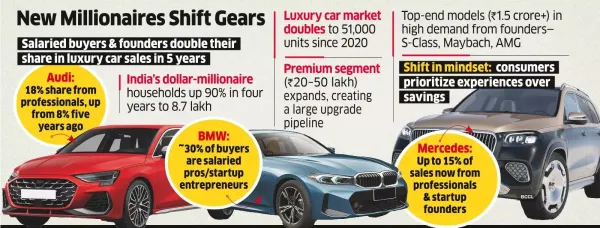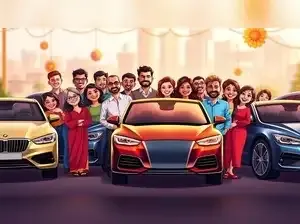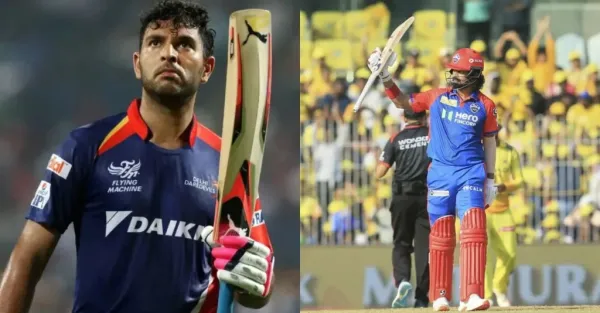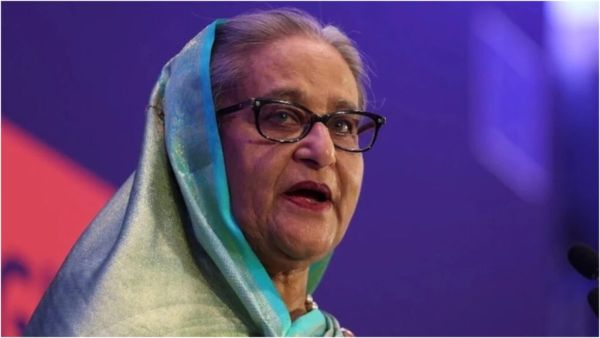New Delhi: Mercedes-Benz, BMW and Audi - signature badges that announce one has 'arrived' in life - have seen the share of top salaried pros and startup founders double over the past five years as automotive luxury drives beyond the traditional business-owner bailiwick.
Further democratisation of luxe drive ownership indicates strong corporate earnings that are underpinning hefty payouts on employee stock ownership plans (ESOPs), as broadbased economic expansion reinforces India's global growth credentials and rapid ascent on the per capita leader-board.
The heads of these leading aspirational carmakers ET spoke with said they are seeing a huge surge in demand from salaried professionals, doctors, lawyers, and chartered accountants and senior management in startups. "Salaried professionals and startup founders now comprise up to 15% of MB sales compared with single digit contribution even five years ago," said Santosh Iyer, Managing Director, Mercedes Benz India.
"Salaried professionals and startup founders now comprise up to 15% of MB sales compared with single digit contribution even five years ago," said Santosh Iyer, Managing Director, Mercedes Benz India.
Wealth creation is no longer restricted to founders alone, but senior corporate professionals are also triggering consumption at the upper end of the luxury market, Iyer said.
Together, the three brands account for nearly 85% of India's luxury car market.
According to the latest edition of Mercedes Benz Hurun India Wealth Report, there has been a 90% increase in dollar millionaire households in the past four years in the country, widening the potential customer base. There are currently 871,700 dollar millionaire households (with net worth more than ₹8.7 crore) in India today.
Lap of Luxury
Sales of luxury vehicles in the Indian market nearly doubled to 51,000 units in the last calendar year, up from 28,600 units in CY2020.
At Audi India, professionals and start-up founders contribute up to 18% of total sales currently, up from about 8% five years ago. The share is much higher in BMW India at about 30%.
Balbir Singh Dhillon, head, Audi India, said that besides an increase in income levels, there has been a dramatic shift in the mindset among consumers in the Indian market in the past five years, helping boost sales in the luxury segment.
"Indian consumers today are more invested in experiences than in savings, compared with a decade ago. They are aware of what is happening globally and want to experience ownership of these cars," Dhillon said.
Furthermore, a growing base of customers at the premium end of the car market in the past five years has created a sizable buyer pool.
"Earlier, there were hardly any vehicles at the premium end of the market. There were mass market cars priced at about ₹20 lakh and then luxury vehicles starting at ₹50 lakh," Dhillon said. "Over the past couple of years, with several new models coming into this space (₹20-50 lakh), there is now a sizable base of customers upgrading to the luxury segment."
Hardeep Singh Brar, President, BMW Group India, said the number of salaried professionals and start-up entrepreneurs opting for BMW luxury cars has increased in double-digits in the last five years.
Further democratisation of luxe drive ownership indicates strong corporate earnings that are underpinning hefty payouts on employee stock ownership plans (ESOPs), as broadbased economic expansion reinforces India's global growth credentials and rapid ascent on the per capita leader-board.
The heads of these leading aspirational carmakers ET spoke with said they are seeing a huge surge in demand from salaried professionals, doctors, lawyers, and chartered accountants and senior management in startups.

Wealth creation is no longer restricted to founders alone, but senior corporate professionals are also triggering consumption at the upper end of the luxury market, Iyer said.
Together, the three brands account for nearly 85% of India's luxury car market.
According to the latest edition of Mercedes Benz Hurun India Wealth Report, there has been a 90% increase in dollar millionaire households in the past four years in the country, widening the potential customer base. There are currently 871,700 dollar millionaire households (with net worth more than ₹8.7 crore) in India today.
Lap of Luxury
Sales of luxury vehicles in the Indian market nearly doubled to 51,000 units in the last calendar year, up from 28,600 units in CY2020.
At Audi India, professionals and start-up founders contribute up to 18% of total sales currently, up from about 8% five years ago. The share is much higher in BMW India at about 30%.
Balbir Singh Dhillon, head, Audi India, said that besides an increase in income levels, there has been a dramatic shift in the mindset among consumers in the Indian market in the past five years, helping boost sales in the luxury segment.
"Indian consumers today are more invested in experiences than in savings, compared with a decade ago. They are aware of what is happening globally and want to experience ownership of these cars," Dhillon said.
Furthermore, a growing base of customers at the premium end of the car market in the past five years has created a sizable buyer pool.
"Earlier, there were hardly any vehicles at the premium end of the market. There were mass market cars priced at about ₹20 lakh and then luxury vehicles starting at ₹50 lakh," Dhillon said. "Over the past couple of years, with several new models coming into this space (₹20-50 lakh), there is now a sizable base of customers upgrading to the luxury segment."
Hardeep Singh Brar, President, BMW Group India, said the number of salaried professionals and start-up entrepreneurs opting for BMW luxury cars has increased in double-digits in the last five years.





